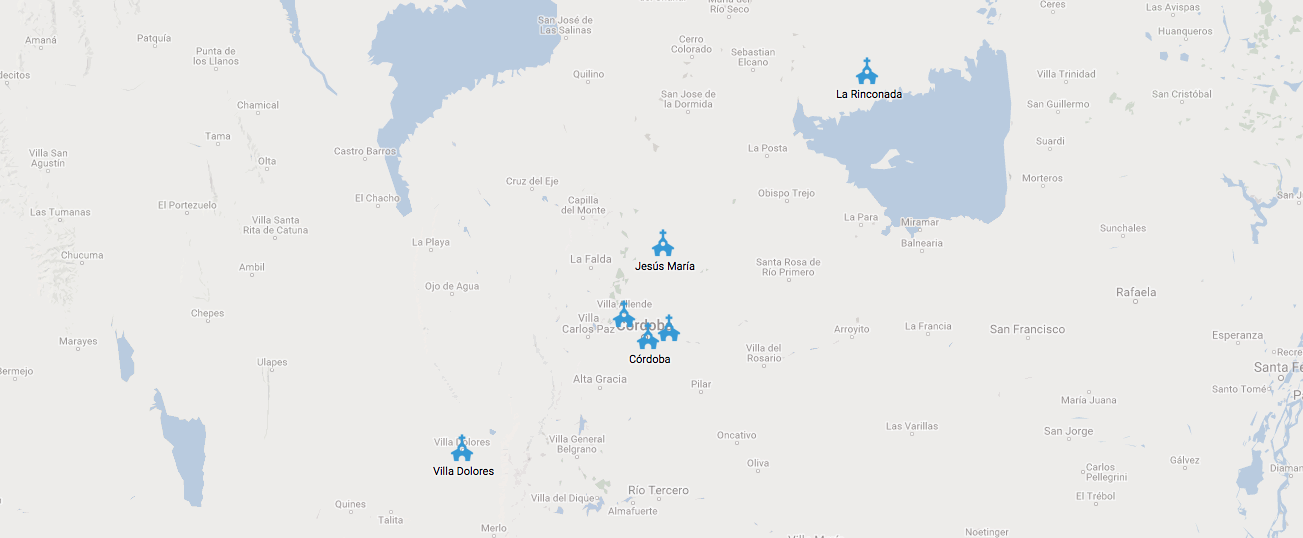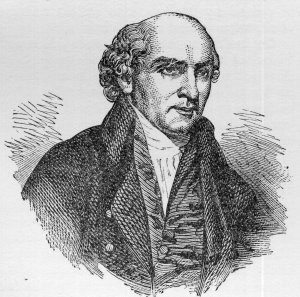The Disproportionate Effects of Prayer
I know we are supposed to persevere in fervent prayer (See Colossians 4:2). Although I experience moments where my heart seems to flow in praise and intercession, it doesn’t happen nearly as much as I would like. Sometimes I wonder if my prayers are adequate.
William Carey was, of course, a great example of perseverance in prayer. Long before he published the Enquiry he had made a large map of the world that he hung in his shoe repair shop as an aid in prayers for the world. After his death his sister Mary recalled, “I forgot to mention that he was always, from his first being thoughtful, remarkably impressed about heathen lands, and the slave-trade. I never remember his engaging in prayer, in his family or in public, without praying for those poor creatures.”
My own father gave me an example of perseverant prayer. Dad had a remarkable character. Before becoming a missionary he had been a drill sergeant in the Marine Corp— you get the idea. He was a very stubborn man; he simply would not quit. When other missionaries threw in the towel my Dad and Mom just kept going. I remember when I was a teenager, during one of the most difficult periods in my parent’s ministry in Argentina, one night at two in the morning I saw the light on in my Dad’s study. I peeked through the window and saw my Dad behind his desk on his knees in prayer. My Dad was stubborn, but his stubbornness was channeled into prayer.
“His stubbornness was channeled into prayer.”
I have seen the fruits of enduring prayer in my own ministry. For something like a decade before we began our church in Córdoba, Argentina, I felt compelled to pray for God to raise up men. Not every day, but often, I would simply ask God for “the twelve”. I had been convinced by Robert Coleman’s book The Master Plan of Evangelism, that the way to see mission growth was to disciple men. So I asked God for twelve men. Years later he has given us many more than we asked for, both in the churches the Lord as allowed us to plant and through Seminario Carey.

Now before you get the idea that I am some sort of prayer ninja, let me confess that there are a number of areas in my prayer life where I have run out of steam. When we first moved into our neighborhood in Córdoba we prayed a lot for the salvation of our immediate neighbors. What is more, we actively engaged them for the sake of the gospel. Not one has ever come to Christ. We have seen fruit in other places, but after twenty years, I must admit, my occasional prayers for the people on our street are just formalities. I make myself go through the motions at times, but I know my prayers are flat.
My own failures explain why I have found encouragement in a statement Carey makes in the Enquiry:
With respect to our own immediate connections, we have within these few years been favoured with some tokens for good, granted in answer to prayer, which should encourage us to persist, and increase in that important duty. I trust our monthly prayer-meetings for the success of the gospel have not been in vain. It is true a want of importunity too generally attends our prayers; yet unimportunate, and feeble as they have been, it is to be believed that God has heard, and in a measure answered them.

William Carey
The prayer meetings Carey mentions were a response to Jonathan Edward’s famous Call to Prayer. At this stage, God had just begun to answer Carey’s prayers. The great missionary expansion that his ministry would spark was still in the future, but Carey is already seeing answers in spite of the fact that he is not satisfied with the quality of their intercessory efforts. These answers encouraged him to persist in prayer.
This is helpful to me since I am not satisfied with my own prayers. Carey himself often expressed similar dissatisfaction. For example, he wrote in his journal:
“I am very defective in all duties, both with respect to the matter and manner of them. In prayer I wander, and am formal, not having that lively sense of my wants which is necessary to wrestling with God. I ask for blessings, yet seem almost contented to go without obtaining them. I soon tire; devotion languishes; and I do not walk with God, considering myself always as in his sight. O what a mercy it is to live near to him, and to realize his perfections and relations to us constantly.”
We must do all we can to persevere in fervent prayer. However, in the final analysis, there is a deeper dynamic at work. The size of God’s answer to our prayers is always disproportionate to the quality of our intercessions. This is because God responds on the basis of his own astounding grace and not our paltry efforts.
As I mentioned, before I ever returned to Argentina as an adult, I regularly prayed for the Lord to give us twelve men to train for ministry. This is the key to long-term growth. The Lord has answered far beyond what I anticipated. We have seen six works started at this point. Right now, just in these congregations there are 35 men who have expressed a desire to be trained for ministry. If we include those studying in the Seminario Carey we have close to two hundred men and women. Now our prayer is that the Lord would provide the resources so that these students can be properly trained.
“Now our prayer is that the Lord would provide the resources so that these students can be properly trained.”
When we come to see how abundantly the Lord responds to our meager prayers, it starts getting easier to pray for situations that seem impossible to change: whether it is for the condition of our lost world, for our neighborhoods, or our families. We can say with the Psalmist, “But as for me, my prayer is to you, O Lord. At an acceptable time, O God, in the abundance of your steadfast love answer me in your saving faithfulness.” (Psalm 69:13 ESV)
